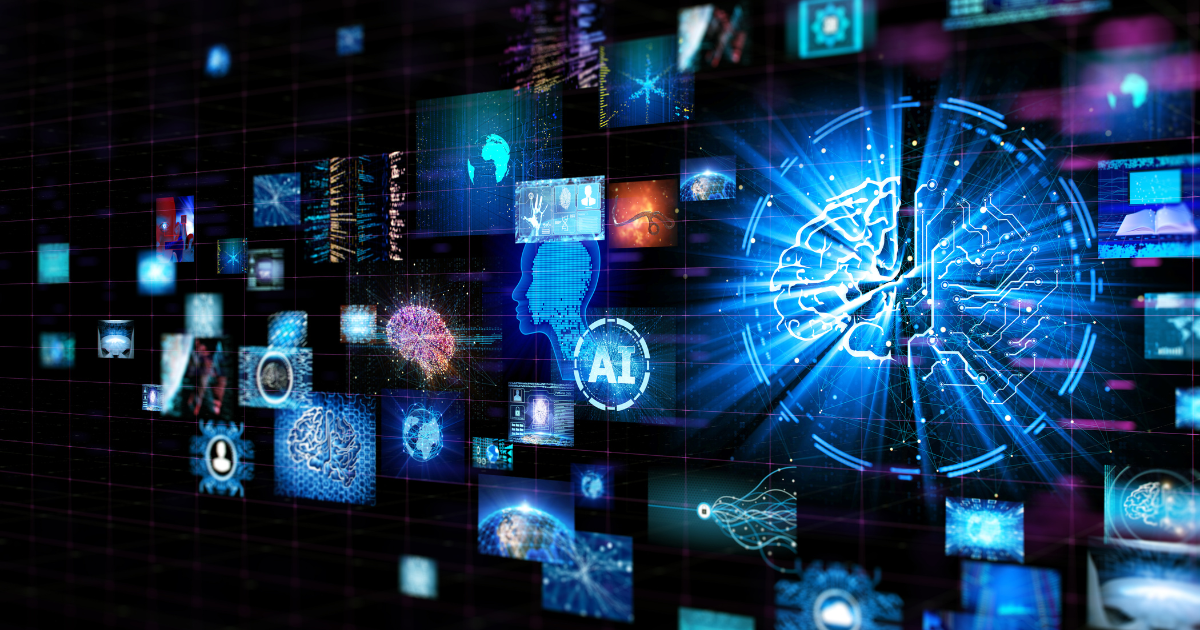In the current era, AI technology has become one of the factors that strongly reshapes the way we live and work. With continuous progress and the development of intelligent algorithms, AI is not just a technology but also a digital brain integrated into complex systems and processes.
Therefore, understanding and mastering AI technology is not only an advantage but also a decisive factor for success in the digital world. In this blog, let's learn about AI technology and its applications.
What Is AI Technology?
AI technology is a field in computer science whose main goal is to create systems capable of self-learning, self-understanding, and self-adaption to the environment automatically, similar or similar to the ability of human.
AI technology uses a variety of methods and techniques, including machine learning, neural networks, natural language processing (NLP), etc.
In recent times, the rapid development of computer technology and big data has promoted the advancement of AI. The applications of AI are increasingly rich and diverse, from voice recognition systems to self-driving cars, from financial market predictions to risk detection and prevention.

What Is AI Technology?
Types Of AI Technology
AI technology includes many different types, each with its own methods and applications. Here are some common types of AI technology:
- Machine Learning: This is an important method in AI in which algorithms are designed to allow computers to learn from data without specific programming. Machine learning has subgroups such as supervised learning, unsupervised learning, and reinforcement learning.
- Neural Networks: This is a type of machine learning model based on the structure of the human brain. Neural networks have the ability to learn and self-adjust from input data, helping them perform complex tasks such as image recognition, natural language processing, and prediction.
- Natural Language Processing (NLP): This technology allows computers to understand, analyze, and produce text and natural language like humans. NLP is used in applications such as speech-to-text conversion, language translation, and sentiment analysis from text.
- Computer Vision: This type of technology focuses on making computers capable of recognizing and understanding images and videos. Computer vision is used in applications such as facial recognition, object detection, and automated driving.
- Robotic Process Automation (RPA): RPA uses software to automate repetitive and structured business processes. RPA can help increase productivity, reduce costs, and minimize errors in business processes.

Types Of AI Technology
Benefits and Risk of AI Technology
AI technology brings many significant benefits as well as quite a few risks.
1. Benefits of AI Technology
- Enhance work efficiency: AI can automate many tasks that previously required human intervention. This helps increase labor efficiency, reduce time and effort.
- Forecasting and data analysis: AI has the ability to analyze large amounts of data quickly and effectively. This helps organizations and users make decisions based on accurate and reliable data.
- Increase user experience: Artificial intelligence is used in many applications such as chatbots, product recommendation systems, and automated customer service, creating a better experience for users.
- Health and healthcare: AI can help in diagnosing diseases, predicting epidemics, and even developing new treatments, helping to improve healthcare.
- Enhanced security: AI is used to monitor, detect and respond quickly to security threats, from traffic monitoring to identifying credit fraud.
2. Risks of AI Technology
- Job loss: AI can replace some jobs previously performed by humans, leading to layoffs or worse, job loss.
- Privacy and security: Using AI can pose privacy and data security risks, especially when users' personal information is collected and analyzed without their consent.
- Biased: If the data used to train the AI is not diverse enough or is biased, it can lead to inaccurate or ethically violated results.
- Risk of attack and abuse: AI technology can also be used to create attack tools, such as intelligent malware or autonomous weapons.

Benefits and Risk of AI Technology
Applications of AI Technology in Daily Lives
AI technology has been playing an important role in many areas of life. Below are four typical applications of AI technology:
1. Traffic and Transportation
AI technology is widely applied to improving traffic and transportation, from navigation systems and traffic management to self-driving cars. AI helps optimize travel routes, predict traffic conditions, and increase safety on the streets.
2. Health Care
In the medical field, AI is used to automatically detect diseases through the analysis of medical images and clinical data. It can help medical professionals diagnose diseases from X-rays and MRI images or provide predictions of disease progression based on the patient's medical history and medical data.

Health Care
3. Education and Training
In the field of education, AI is used to create personalized learning platforms, provide instant feedback, and customize curriculum based on each student's needs and learning progress. It can also assist teachers in classroom organization, student assessment, and developing more effective teaching methods.
4. Entertainment
AI technology plays an important role in providing personalized entertainment experiences, including movie, music, book, and video game recommendation systems. It is also used to create creative content such as music, movies, etc.
Hopefully, HR1Tech has provided you with a lot of useful information about AI technology. Its continuous development promises to bring many new conveniences and significantly improve the quality of life.
HR1Tech - Nền Tảng Tuyển Dụng Trực Tuyến Ngành CNTT
Tìm việc và tuyển dụng ngành đa ngành. Khám phá thêm tại: www.hr1jobs.com